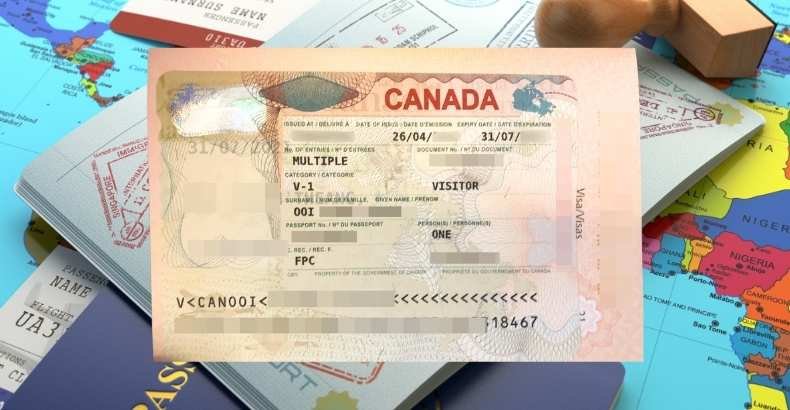Attending a conference in Canada is an exciting opportunity to expand your professional network, share knowledge, and explore cutting-edge advancements in your field. However, for many visitors, questions about what they are allowed to do during their stay often arise. One common query is, “Can I work with a conference visa in Canada?”
No, a conference visa does not permit you to work in Canada. This visa is specifically designed for attending conferences and related activities only. If you wish to engage in employment, you will need to apply for a separate work permit. Violating the terms of your conference visa can lead to serious legal consequences.
Are you curious about what steps to take if you want to work while attending a conference? This article will explore the restrictions of a conference visa and guide you on how to transition to a work permit if needed.
What is a Conference Visa Exactly?
A conference visa is a specific type of travel authorization that allows individuals to attend conferences, seminars, or workshops in a foreign country. It is usually issued for short durations and is meant solely for professional or academic purposes. Applicants must provide evidence of their intent to participate in the event, such as an invitation letter or event registration confirmation.

This visa is different from a tourist visa, as it requires proof of professional relevance. Authorities may ask for documentation such as proof of employment, a business affiliation, or academic credentials. These requirements ensure that the applicant’s participation aligns with the purpose of the visa.
When applying for a Canadian conference visa, being aware of the key requirements for Canadian conference visa eligibility is essential. These typically include a valid passport, proof of financial stability, and travel plans aligned with the event dates.
Can I Work With a Conference Visa in Canada?
When it comes to the question, “Can I work with a conference visa in Canada?” the answer is clear “No”, you cannot work while holding a conference visa. This visa type is strictly limited to attending conferences and related events. Engaging in any form of employment or business activities is not allowed.

Key Points on Work Restrictions
Let’s look at the main points related to conference visa work restrictions in Canada. During your stay, you should be aware of these limitations to avoid unintended legal issues. By being aware of the rules, you can enjoy your conference experience without worries.
- No Employment Allowed: The conference visa explicitly prohibits any work-related activities. This includes paid work, internships, or any form of business operation.
- Volunteering is Complicated: While some people might wonder about volunteering, this can also be risky. Many volunteering positions can be seen as work, so it’s best to clarify this with immigration authorities.
- Strict Enforcement: Canadian authorities take visa regulations seriously. Working without a valid work permit can lead to severe consequences, including deportation or being banned from entering Canada in the future.
Consequences of Working on a Conference Visa
Working on a conference visa can lead to serious repercussions that you should be aware of. Engaging in unauthorized work may result in legal penalties, including fines or even deportation. Having a clear idea of these consequences will protect your future opportunities in Canada and ensure a smooth visit. The possible consequences to face are:
- Working without a permit can result in fines or legal action.
- Any violations can negatively impact your ability to obtain visas in the future.
- In some cases, you may face immediate deportation if caught working illegally.
Canadian Work Visa Requirements
If you’re eager to work in Canada, the first step is to determine the right type of work permit that fits your situation. Research the requirements and gather the necessary documents to support your application. Taking these proactive steps will help you navigate the process smoothly and set you on the path to achieving your career goals in Canada. Consider the following steps.
- Determine the Right Work Permit: Identify which type of work permit suits your situation. There are various options, such as employer-specific permits or open work permits.
- Apply for a Work Permit: You will need to submit a separate application for a work permit, including relevant documentation and fees.
- Wait for Approval: Ensure you do not start working until your work permit is approved.
What Restrictions Come With a Conference Visa?
A conference visa is not just about attending events, it also comes with specific restrictions that attendees must adhere to. A successful Canadian visit requires an understanding of these limitations.
Some visa holders may be restricted to certain areas within Canada, depending on the terms of their visa. You must leave Canada by the expiration date of your visa, as overstaying can lead to serious legal issues.
- Limited Duration of Stay: Conference visas are typically valid for a limited time. Ensure you adhere to the dates specified in your visa.
- No Employment Rights: As mentioned, working in Canada with this visa is prohibited. Engaging in any form of employment can lead to severe penalties.
- No Permanent Residency Path: A conference visa does not provide a pathway to permanent residency in Canada. If you wish to stay longer, you’ll need to explore other options.
While attending conferences, visa holders are expected to comply with all Canadian laws. This includes respecting local customs and regulations. Failure to do so can result in penalties or visa revocation.
Being aware of the restrictions associated with a conference visa helps attendees navigate their experience in Canada more effectively. Adhering to these regulations ensures a smoother visit and protects your ability to return in the future.
Alternatives to a Conference Visa for Working in Canada
If you’re considering working in Canada, several alternatives to a conference visa may better suit your needs. These options can help you make informed decisions about your professional journey.
Work Permit Options
This permit allows you to work for a specific employer in Canada. It often requires a job offer and may involve the employer obtaining a Labour Market Impact Assessment (LMIA). In contrast, an open work permit allows you to work for any employer in Canada, giving you greater flexibility. However, it may have specific eligibility criteria, such as fulfilling work visa requirements for conference speakers or other specialized roles.
Study Permits International Experience Canada (IEC)
If you plan to pursue education in Canada, a study permit may be an option. Many study permits allow part-time work during studies and full-time work during scheduled breaks.
For young individuals from certain countries, the IEC program offers work opportunities in Canada without the need for a job offer. This program includes various streams, such as working holiday visas.
Express Entry
If you’re looking for a long-term solution, consider applying for permanent residency through the Express Entry system. This system evaluates applicants based on skills, work experience, and other factors.
Networking and Job Searching
While you cannot work on a conference visa, you can still network and seek job opportunities during your stay. Connecting with industry professionals can lead to potential job offers that you can pursue with the appropriate work permits.
Exploring these alternatives provides a clearer pathway to working in Canada while ensuring compliance with immigration regulations. Understanding your options can help you navigate your professional goals effectively.
What Happens if You Work on a Conference Visa in Canada?
Engaging in work while on a conference visa can lead to serious consequences. Potential attendees must understand these implications considering this route. Working illegally on a conference visa can result in legal penalties. Besides, a history of violating visa conditions can significantly affect your ability to apply for visas in the future. Immigration authorities may view past violations unfavorably, leading to:
- Fines and Penalties: You may face monetary fines for violating visa regulations.
- Deportation: In severe cases, individuals caught working without authorization can be deported from Canada.
- Increased Scrutiny: Future visa applications may undergo more rigorous scrutiny.
- Potential Denials: You may face difficulties obtaining visas for Canada or other countries.
If you are in Canada on a conference visa and decide to work, your current visa status could be jeopardized. Immigration officials have the authority to revoke your visa, leading to immediate legal consequences.
To avoid these risks, adhere strictly to the regulations associated with your conference visa. Making informed decisions about your time in Canada can be facilitated by understanding the potential consequences.
How to Transition From a Conference Visa to a Work Permit?
If you find yourself wanting to work in Canada while on a conference visa, transitioning to a work permit is possible but requires careful planning. Here’s how you can deal with this process effectively.

- Determine if you meet the criteria for the type of work permit you wish to apply for.
- Collect all required documentation, including your conference visa, job offer (if applicable), and proof of qualifications.
- Depending on your situation, you may need to apply from within Canada or return to your home country to submit your application.
- Do not begin working until your work permit is officially approved. Processing times can vary, so patience is key.
- Once you receive your work permit, ensure you comply with all conditions outlined in the permit.
Important Considerations
Apply for the work permit well in advance to avoid any overlap issues between your conference visa and work authorization. If you’re uncertain about the process, consider consulting an immigration lawyer or consultant for guidance.
Transitioning from a conference visa to a work permit can be complex, but is manageable with the right steps. Being proactive and informed about the process can help you achieve your professional goals in Canada.
Frequently Asked Questions (FAQs)
Here are some answers to common questions about conference visas in Canada. These answers will help clarify any uncertainties and guide you through the intricacies of visa regulations and options.
Can I Extend My Conference Visa in Canada?
Yes, it is possible to apply for an extension of your conference visa. However, you must demonstrate a valid reason for the extension and submit your application before your current visa expires. Be sure to include all necessary documentation to support your request.
How Long is a Conference Visa Valid for?
A conference visa’s validity typically aligns with the duration of the conference and may vary depending on individual circumstances. Check the specific dates listed on your visa and adhere to them. Overstaying your visa can lead to legal issues.
Can I Attend Multiple Conferences With the Same Visa?
Generally, a conference visa is issued for a specific event. However, if the conferences are closely related and fall within the same timeframe, you may inquire about attending multiple events. Always verify with the conference organizers and immigration authorities for clarity.
What Should I Do if I Accidentally Work While on a Conference Visa?
If you accidentally engage in work while on a conference visa, it’s crucial to stop immediately and seek legal advice. Document any relevant information and be prepared to explain your situation to immigration authorities. Transparency and honesty are essential in addressing any potential violations.
Can I Switch From a Conference Visa to a Study Permit?
Yes, switching from a conference visa to a study permit is possible. However, you will need to apply for the study permit and meet the requirements, including enrollment in a recognized educational institution. Be sure to follow the application process carefully to ensure a smooth transition.
Final Thought
If your goal is to work in Canada, you should explore the right pathways, such as obtaining a work permit that suits your needs. Whether you choose an employer-specific or an open work permit, knowing the requirements and processes is essential for a successful transition.
The answer to “Can I work with a conference visa in Canada?” is “no”. Working on this type of visa is not permitted. The conference visa is specifically designed for attending events, and violating its terms can lead to serious consequences, including legal penalties and difficulties with future visa applications.